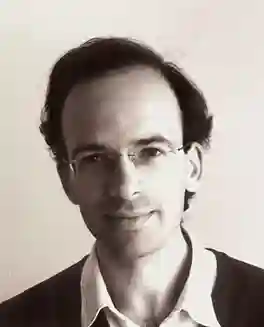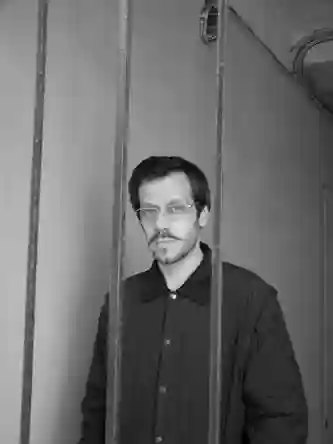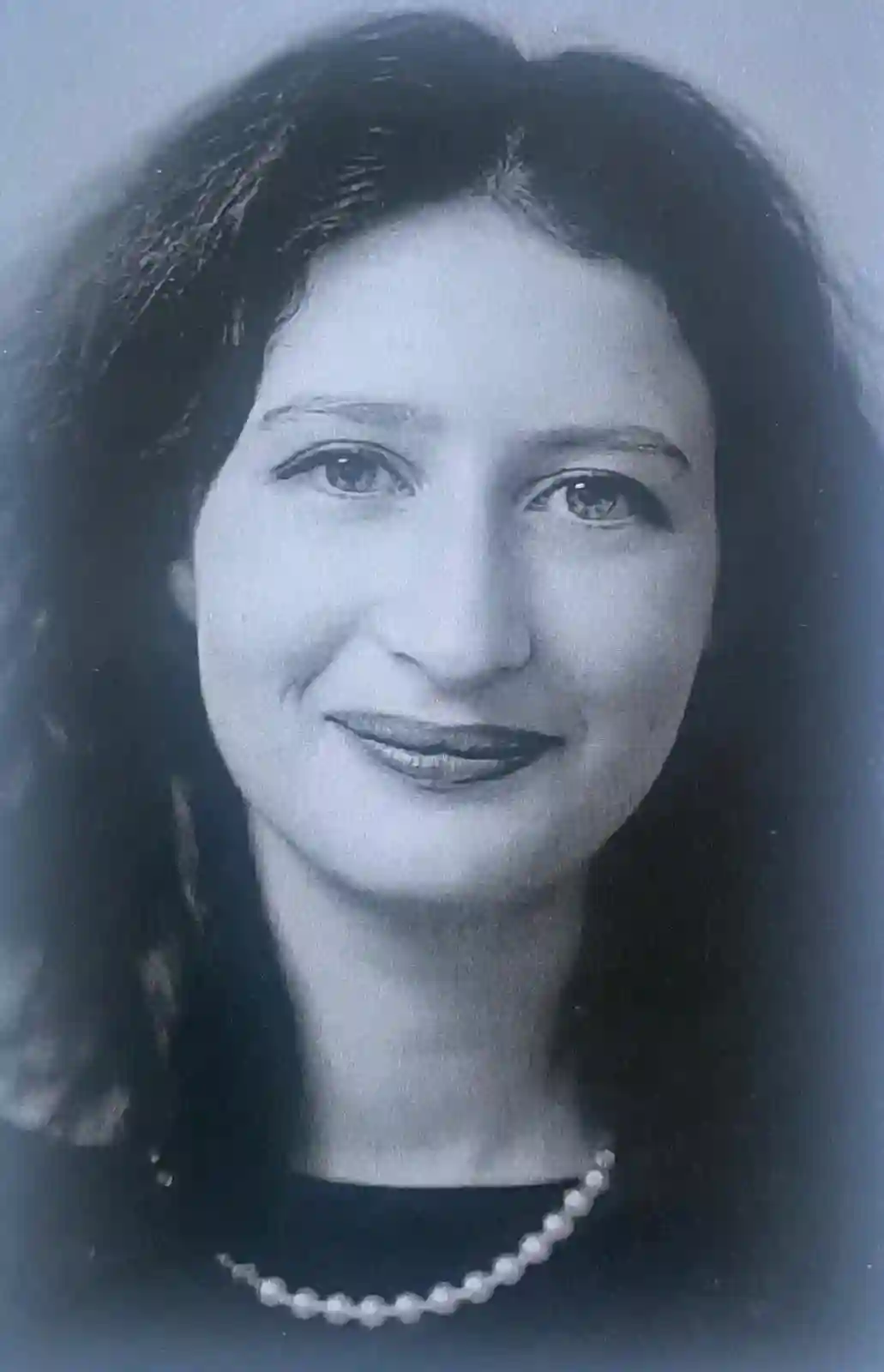... the chamber opera for four vocalists and an ensemble of baroque instruments was premiered in 2006 in Basel. It is a kind of homage to Jean-Philippe Rameau, but in no way a stylization. Instead it is written entirely in Boris Yoffe’s personal musical language. He breaks with nothing, since for him – in a way that seems miraculous – the traditional is set in stone, but continues to thrive, remaining capable of expressing even now something exciting, something important – something of which we listeners, thanks to his music, can be persuaded. The opera is as free of superficial effects as from glamorous eagerness to please. It is rigorous and deliberate like Racine’s original, and at the same time provides adequate space in this framework of strictness and grace to create the most divergent characters. The line of Esther’s vocal part can belong only to the beautiful queen, can only rest on her delicate and majestic shoulders .... In this flexible line, however, we also hear her fear and trembling, the power of her faith, her love that defeats selfishness, lies, and hate. Admittedly this does not quite mirror “The Way We Live Now,” but such experiences are still permissible in art! It is neither an illusion nor an escape – on the contrary, it is a human truth, the most important thing art can give.
I agree that with the use, data will be transmitted to Youtube. Note: You can revoke your consent at any time for the future by deleting the youtube_cookie cookie. privacy
Show VideoI agree that with the use, data will be transmitted to Youtube. Note: You can revoke your consent at any time for the future by deleting the youtube_cookie cookie. privacy
Show Video... ("The story of the rabbi and his son") is a mystery play based on the story by Rabbi Nachman from Barzlaw (libretto written by the composer and Henry Volochonsk, in Yiddish). Written in 2002, this camber operas is still waiting for its premiere. Only the introduction has been performed.

"Like the smell of my grandmother’s kitchen, Boris’s music, his texts, and his entire personality have something unmistakable for me. To stay with the culinary image: Again and again I have had, after playing or hearing his music, the feeling of having eaten a very good meal. Everything he composes is genuine, unique and benevolent. What more could you ask? A refreshing shower maybe? But his music does that, too!"
The pianist Konstantin Lifschitz often plays pieces by Boris Yoffe. His repertoire includes “Sonata ricercata” and “Muse der Demut,” and he has also performed Yoffe’s Mozart cadences, for example the one for the 21th piano concerto in C major, KV 467, 3rd movement:

I agree that with the use, data will be transmitted to Youtube. Note: You can revoke your consent at any time for the future by deleting the youtube_cookie cookie. privacy
Show Video
"Boris’s music is like ascending to a different heaven,
to the land of dreams, of suspended sounds, of infinite resonances,
to another time of remembrance, to mysterious spheres where minutes can no longer be counted (as when I walk through “our” Venice at night);
it is a music that makes the tangible world, the banalities and the useless will of destructive humanity dissolve in just a few notes;
Boris’s piano music seems almost to come from outside the piano.
Yet nothing he does is fanciful or, on the other hand, simply introspective; on the contrary, the ‘Angelus Novus’ sings, listens, sometimes screams, ‘seeks’
– likely seeking us,
seeking that in us which still remains of the beauty that humankind has almost lost!
Or perhaps his ‘muse’ searches ‘with eyes closed’ for the humility that might allow us to rediscover the beauty of time, which flies just as we thought we were holding it fast in our hands,
like the incomprehensible movement of an hourglass filled with gold ...
Thank you, Boris, for letting me dream!"
Christophe Sirodeau’s remarks on Boris Yoffe after playing and recording the piano works “Muse der Demut,” “Sonata Ricercata,” “Angelus Novus,” “Mit geschlossenen Augen,” and the “Bagatelles” (and having heard other such intimate pieces as “Bunte Steine,” “Tambourin,” and “Wanderers Nachtlied.”).

I agree that with the use, data will be transmitted to Youtube. Note: You can revoke your consent at any time for the future by deleting the youtube_cookie cookie. privacy
Show Video
Mit dem ersten Tausend aus seinem Quartettbuch hat Boris Yoffe mit einer grenzwertigen Klarheit bewiesen, dass er niemandem etwas beweisen muss. Die Geschichte (der Musik, der Kultur, Europas, der Welt) kennt offensichtlich kein indifferenteres Buch. Es existiert für sich allein, auf eigene Gefahr: getrennt von der Welt - eine Trennung in der Welt. Scheinbar hat das erste Tausend nicht gereicht. Ohne anzuhalten hat das Quartettbuch ein weiteres Tausend überschritten, und sein Autor hat sich für eine Zusammenarbeit mit einem über-rationalen (Halb-)Dichter namens Chlebnikow entschieden. Aber wozu?
Nur um die alte Wahrheit zu wiederholen, dass es keine Wahrheit gibt.
Ein weiteres Wort, ein weiterer Ton (nach den Tausenden an der Unendlichkeits-Grenze). Ohne etwas zu zeigen. Zu erklären. Vorzumachen. Nur vorbei gehend am Rande des mit tausend Füßen getretenen Weges. Beginnend, fortsetzend, abschliessend.
Ohne Zeit, ohne Beziehung. Sogar ohne einen Gesichtsausdruck. Boris Yoffe baut seine Kunstwelt gemeinsam mit Chlebnikow, ihm folgend. Jeder Schritt führt tiefer zu sich selbst. Auf dem Weg des eigenen Quartettbuchs. Auf der Spur der Préludes flasques (pour un chien) und Sokrates von Satie. Und auf jeden Fall: ohne Beziehung zu der äußeren Menschen-Welt.
Was auch geschieht, das Gesicht bleibt reglos. Kein Laut aus dem Mund. Finger an den Lippen. Nur der feine Staub der Schritte. Klänge und Wörter rinnen durch die Finger. Die Hand bleibt leer. Das ist alles, was ihre Welt verdient. Außerhalb der Logik, außerhalb der Realität, außerhalb der Bindung. Dem Tag zum Trotz, und sogar der Nacht. Seine gesamte Musik (mit und ohne Worte) wird zu einem tragenden Klang aus unendlich vielen Teilen: unbeteiligt. Ähnlich wie die „Schwäche-Übungen“ oder das „Requiem internam“. Auch im Gegensatz zu ihnen. Und doch: ganz mit ihnen übereinstimmend.
Wei ein Vollzugsbeamter, langsam und unbeteiligt liest Madame Lenine das Urteil über die eitle Menschenwelt. Ein sehr leises Urteil. Fast unhörbar. Ein nicht-existierendes Urteil. Freilich, die Welt hört es nicht. Sonst wäre es auch kein wahres Urteil. Ein Schritt zurück.
Und doch möchte ich daran erinnern: manchmal reicht auch ein Strich, um den Rest des Welt-Baus zu vervollkommnen, der durch den vorherigen Schöpfer unvollendet gelassen wurde.
